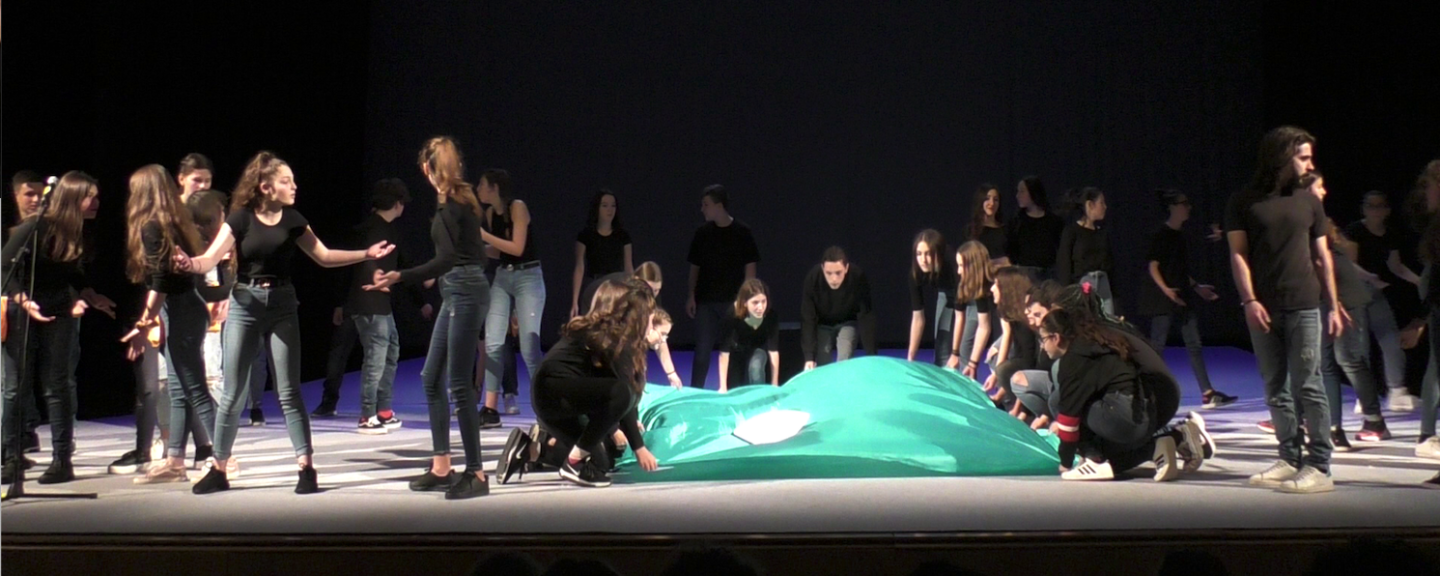How to get today’s kids interested in some of literature’s classics? Especially if they have little contact with arts and culture through their families, or have been experiencing the hardships of flight? EUNIC Thessaloniki, together with Mikros Vorras theatre company, gave it a go.
It was a magical journey
“#Odysseia– Theatre for children with fewer opportunities” took as a starting point one of the most well-known Greek epic poems, the Odyssey, which is included in the curriculum of Greek high schools and has been deeply embedded as an important source of pedagogical value. But is this relevant to the students this project brought together?
What impressed me the most was the transformation of our students. Hesitant pupils with low self-esteem came forward and revealed to us a much different picture of themselves. Something new emerged from with in them. They believed in their potential, became conscious members of a group and were liberated. The experience was overwhelming. It was a magical journey.
This statement from one of the head teachers shows how the project was able to impact students’ lives. The project brought together a group of pupils from diverse backgrounds and origins. In difficult times of possible economic and social marginalisation of vulnerable groups, the final performance showed what they were able to accomplish together, something they were really proud of.
Theatre for disadvantaged youngsters and refugee minors
The project was designed for teenagers from disadvantaged social groups, including a number of refugee minors, with limited opportunities to engage in art and culture. The main objective of the programme was to contribute to their development and empowerment through theatre, creative movement and music. A total of fifty students were involved thanks to the partnership with three public schools in Thessaloniki.
The programme began with the presentation of a performance of the Odyssey by theatre company Mikros Vorras at each of the participating schools. In the following three months, the educational programme featured workshops with themes based on the main character Odysseus and his travels: memory and forgetfulness (the Land of the Lotus Eaters), trust (the Bag of Aeolus), and modern temptations (Sirens).
The workshops were delivered by a group of educators, animators, actors, psychologists, kinesiologists and musicians who worked together with the participating pupils, supporting them in developing their expressive abilities and cultivating their social skills and self-empowerment through the art of theatre, creative movement and music, and also through the joy of co-creation and creation.
Online platform #Odysseia
An online platform was set up for the pupils to submit their thoughts, feelings, texts or any other creative work on the subject, connected through the hashtag #Odysseia. In this way participating pupils connected their own life experiences with those of the characters of the original story. Finally, texts, thoughts, and feelings produced through improvisation, reflective discussions and the online platform were gathered by the workshop facilitators and put together into a play titled “Odyssey for Our Own Life”.
The closure of the programme involved a final performance of the students’ work at the Central Stage of the National Theatre of Northern Greece. The programme was curated by the Mikros Vorras theatre company with the support of EUNIC Thessaloniki bringing together British Council, Goethe-Institut, Institut français and Istituto Italiano di Cultura. It was selected in the EUNIC Cluster Fund call 2018.

